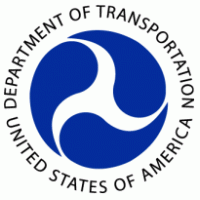WASHINGTON – Today, the U.S. Department of Transportation’s Pipeline and Hazardous Materials Safety Administration (PHMSA) announced more than $25 million available in grant funding through its pipeline and hazardous materials safety programs. These grants are for projects that will train first responders, strengthen safety programs, improve safety, reduce environmental impacts, and educate the public on local safety initiatives. This includes projects that provide support to state inspectors for hazardous materials shipments and pipelines inspections, important safety training and educational programs for emergency response, and advance innovative safety technologies.
“We need to make sure our first responders are ready to respond to emergencies involving pipelines and hazardous materials,” said U.S. Transportation Secretary Pete Buttigieg. “These grants will train firefighters and other first responders and help ensure that communities have the resources they need to keep their residents safe.”
This funding announcement comes after the Norfolk Southern derailment in East Palestine upended the lives of the community. Responders nationwide previously received training because of the Assistance for Local Emergency Response Training (ALERT) grant program, including 2,500+ responders in 137 different locations in Ohio. Several of those trained emergency responders were on the ground during the recent derailment. In addition to this existing funding, Secretary Buttigieg called on Congress to increase funding to expand hazardous materials training for first responders. Additional funding for first responders is part of the Bipartisan Railway Safety Act of 2023.
The funding will go towards the following grants:
Pipeline Safety
- Pipeline Emergency Response Grants
- Competitive Academic Agreement Program Grants
- Technical Assistance Grants
- State Damage Prevention Grants
- One-Call Grants
Hazardous Materials Safety
- Hazardous Materials Instructor Training Grants
- Hazardous Materials State Inspection Grants
- Assistance for Local Emergency Response Training Grants
- Hazardous Materials Emergency Preparedness Tribal Grants
- Supplemental Public Sector Training Grants
- Community Safety Grants
“Whether it’s dealing with a pipeline rupture or a train derailment—training is essential to the safety of our first responders and the communities they serve,” said PHMSA Deputy Administrator Tristan Brown. “These grant opportunities will help ensure first responders have what they need to address the unique challenges that exist in communities across the country.”
The Notices of Funding Opportunities provide more details on eligibility and how each grant improves and strengthens pipeline and hazardous materials safety. PHMSA will work to maximize grant awards based on the applications received. Each official notice of funding opportunity is available at https://www.grants.gov/web/grants/search-grants.html under Department of Transportation-PHMSA on the agency drop-down menu. Applicants can also contact the appropriate agency representative identified in the respective notice of funding opportunity with further questions.
Since 2021, PHMSA has awarded more than $206 million in grants to eligible recipients for projects, research, and development activities that work to enhance the safety of America’s energy pipeline network and hazardous materials transportation. For Fiscal Year 2024, PHMSA requested a $21.5 million increase for its State Pipeline Safety Grants to reimburse states for up to 80% of their inspection costs, an $18.5 million increase in funding for its emergency preparedness grants that train emergency responders and volunteers, and a $3 million increase in Community Safety Grant funding to better prepare underserved communities for the transportation of hazmat and crude oil through communities. Details about prior grant awards and related projects can be found on PHMSA’s grant webpage.
The Pipeline and Hazardous Materials Safety Administration’s mission is to protect people and the environment by advancing the safe transportation of energy and other hazardous materials that are essential to our daily lives. Please visit https://www.phmsa.dot.gov for more information.


